


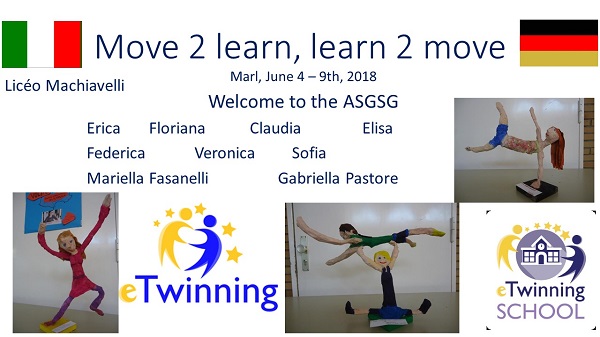
Programme move2learn Marl

Welcoming pdf for the guests

On this page we, as Young European Journalists United, document the Move2Learn adventure in Marl, Germany, which is the award we have been given for our eTwinning project "Citizens@work".
Thus our keywords will be: Move2learn about our hosts' Cultural Heritage, Move2schoolwork, Move2toworkout, Move2be surprised
Here you have a quote from Mrs. Beate Vollmer's email when sending the Italian Move2Learn team the programme
"We are situated in the Ruhr Valley region of Germany, coal mining has been a very important part of people's lives here. This year the last coal mine closes and for years the region has tried to reinvent itself without the coal industry. So you will get a glimpse of what this cultural heritage means and how people worked in those days when we will visit the Pit Zollverein.
We will also consider the world of work in another exhibition dedicated to different fields of work.
And there will be ample opportunity for other work outs. So please bring your sports gear (shoes, sports clothes, swimming costume)."
DAY 1 June 4th
Arrival day: Roma Termini -> Roma Fiumicino->Dusseldorf->Essen->Marl (train, plane, train)
Planning the eTwinning week documentation
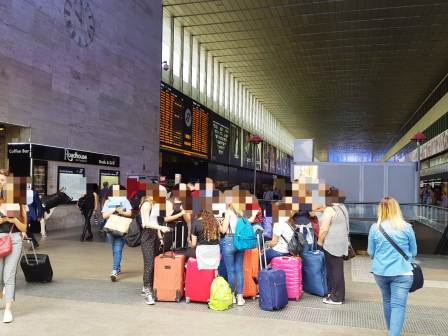
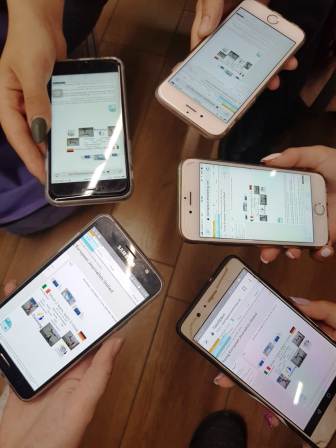
DAY 2 June 5th
Excursion to the UNESCO cultural heritage site: Pit Zollverein - Ruhr Museum - the Age of Coal - A European History
Lunch break in the city of Essen
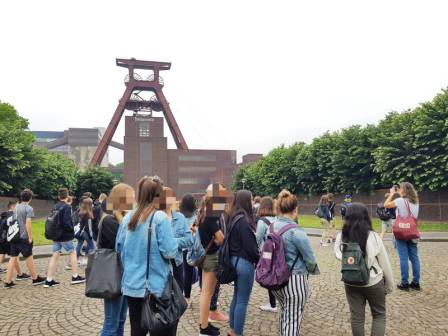
DAY 3 June 6th
Classes at ASGSG - School Rallye - Guided tour of the school -
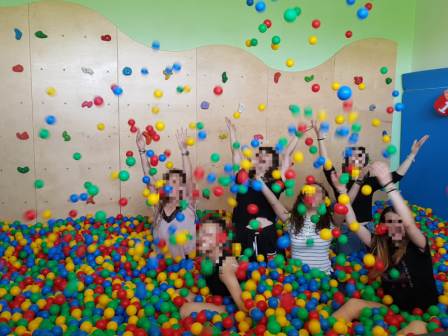
School rallye

Guided tour of the school

DAY 4 June 7th
Excursion at the DASA Museum in Dortmund - Exhibition: The World of work
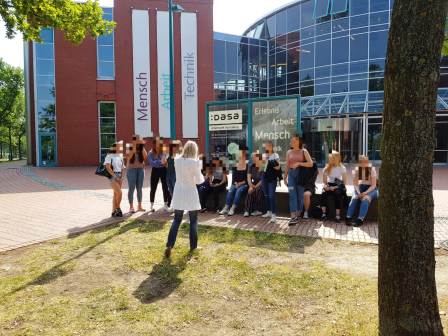
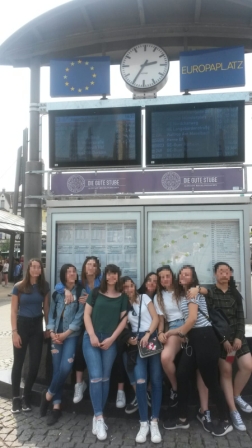
DAY 5 June 8th
Classes at ASGSG - eTwinning work - Marl Town Rallye - Sculpture Museum Marl Exhibition: Coal and art - Festive get-together barbecue

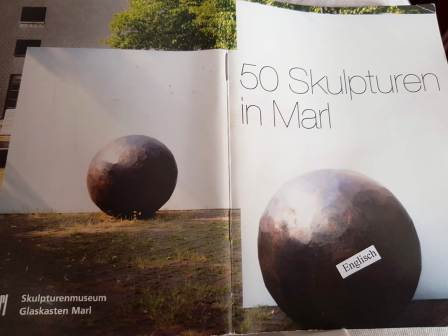
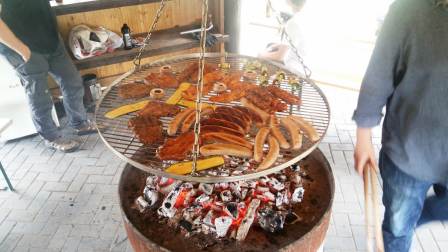
DAY 6 June 9th
Departure day: Marl->Dusseldorf->Roma Fiumicino-Roma Termini
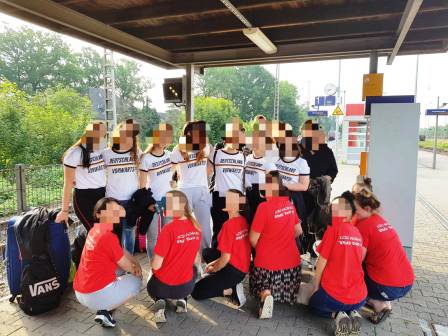
Report about the exchange on the school homepage of the Albert-Schweitzer- /Geschwister-Scholl Gymnasium at this link
https://www.asgsg-marl.de/index.php?option=com_content&view=article&id=1361:move2learn-2&catid=60&Itemid=244
Interviews with the workers done by Milena Schoknecht
Interviews
Cloakroom attendant
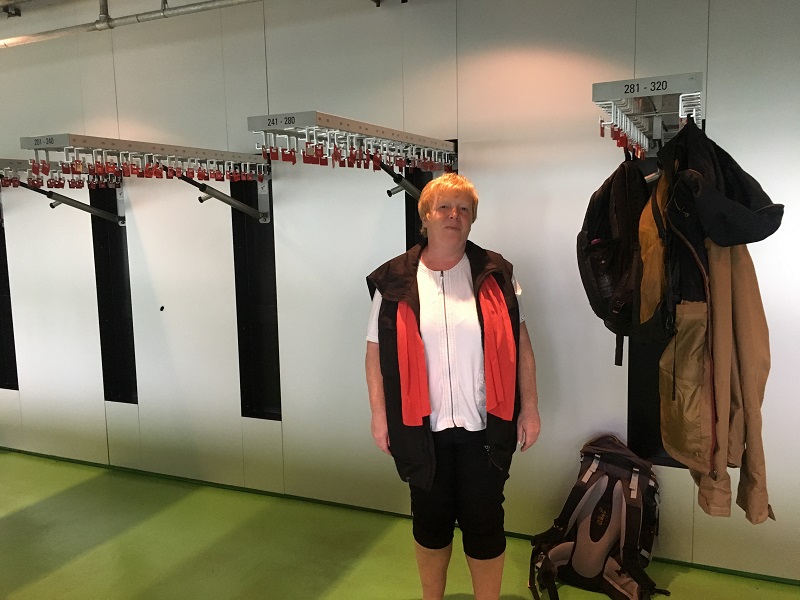
Why do you like your job?
- Because I'm in contact with people, who speak different languages and have different moods. It is funny to see what kind of people come to visit our museum.
What languages are spoken?
- Of course they usually speak German, but there are a few people who speak other languages like French or English
Did you have contact to the pit and coal mining in your past?
- No, never, but it is totally great. Today there were children who got different motives painted into their face with coal. That was actually exciting and funny to look at.
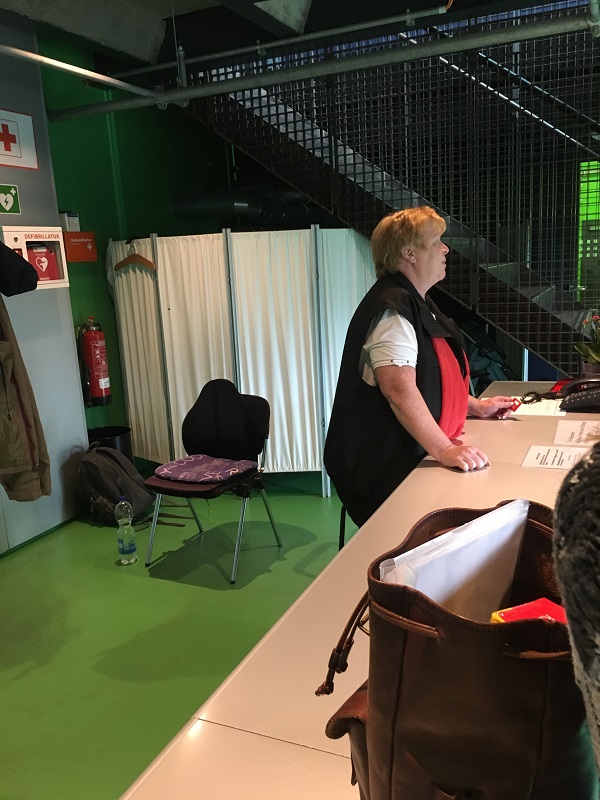
Museum attendant at the Pit Zollverein
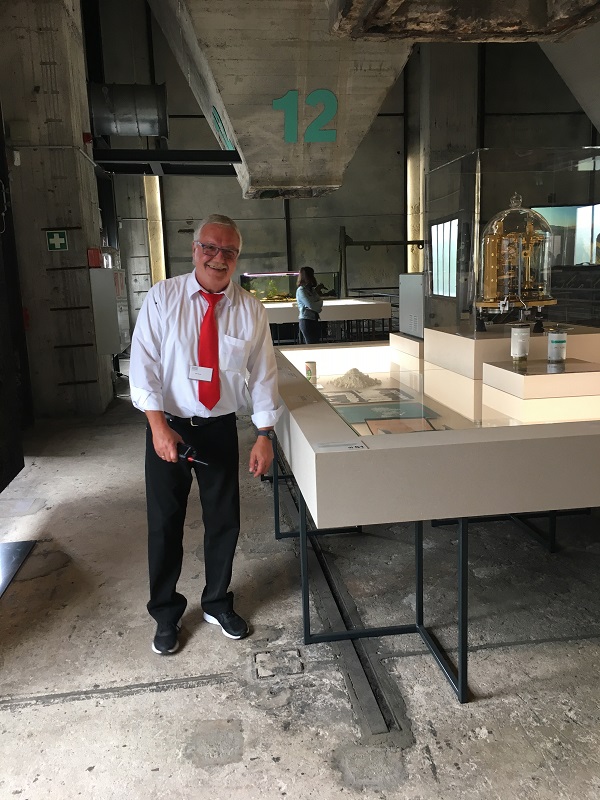
What is your main excercise of the day?
- I am the one, who looks out for the people, who visit our museum. My task is to take care of the sculptures, no one is allowed to touch or break them. I really like talking to people.
Do you like your job? Why?
- I really like my job, because I am in contact with people and I always help them if they have questions.
What kind of questions, about the sculptures?
- No, my job is it to show them where they have to go, when they search the bathroom or a different floor. I work for 8 hours and my colleagues and I change often floors.
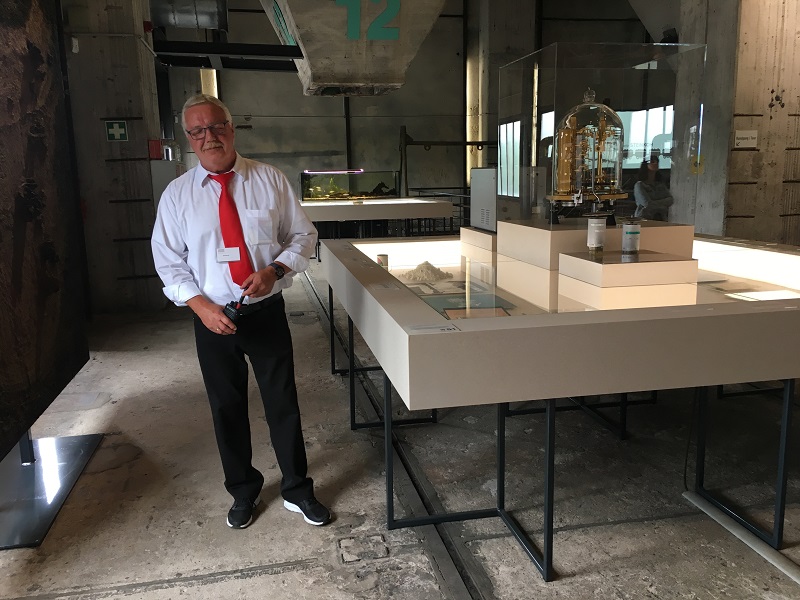
Café Del Sol – Waitress
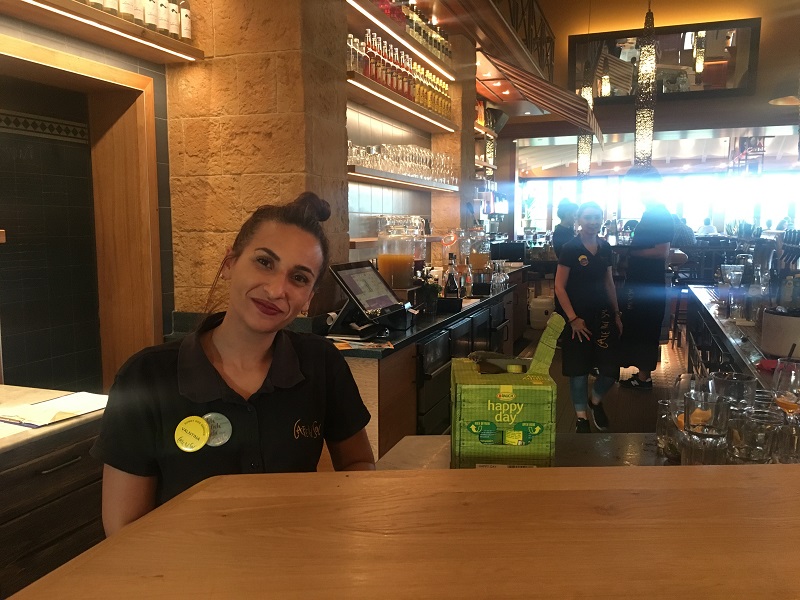
What are you doing daily?
- My job is it to be the waitress, but I am also the shift manager for the workers, I really really like having conversations with our customers and having such a good team.
What are the most important references for this job?
- You should actually be open-minded for meeting people and not grumpy or annoyed. It is really stressful everyday, you should be able to manage this stress.
-Milena Schoknecht
Videos by the Italian girls in Marl
l
Videos by the German team
https://vimeo.com/277115280
Coal mining and the oral tradition in the Ruhr Area
As the main industry at this place in the past, coal mining is an important part of the Ruhr Area’s culture. The Zollverein in Essen was also the first stop of our one- week-trip with the Italian team. But do you know that it also influenced the oral tradition here?

https://www.open-iba.de/geschichte/1989-1999-iba-emscher-park/zeche-und-kokerei-zollverein-essen/
Proverbs about coals
- Öl steht für Mobilität, Gas für Wärme und Kohle für Strom - das ist der klassische Energiemix
--Oil stands for mobility, gas for heat and coal for power – that. has been the traditional energy mix
- auf glühenden Kohlen – on burning coal (=on pins and needles)
- auf heißen Kohlen sitzen – sit on hot coal (=to be like a cat on hot bricks)
- feurige Kohlen auf jemandes Haupt sammeln – collecting fiery coals on someone's head (=to heap coals of fire on the head of someone)
- Hauptsache, die Kohle stimmt! – The main thing, the coal is right! (=It’s all right as long as the money is right!)
- massenhaft Kohle haben – to have tons of coal (=to have pots of money)
- ohne Kohle total blank – totally blank without coal (=hard up)
https://www.phra sen.com/index.php?do=suche&q=kohle
The famous “Glück auf!”


https://en.wikipedia.org
Glückauf (alternative spelling Glück auf) is the traditional German miners' greeting. It describes the hope of the miners: "Ich wünsche Dir Glück, tu einen neuen Gang auf" ("I wish you luck in opening a new lode"), because, when mining for ore, without prospecting, no-one could predict with certainty whether the miners' work would lead to a reward. The greeting also expressed the desire that miners would return safely from the mine after their shift. Today it is still a common form of greeting in the Ore Mountains region of eastern Germany.
https://en.wikipedia.org/wiki/Gl%C3%BCck_auf#Related_terms
Also, there are some brands referenced to the coal mining culture. For example, this coke called “Kohla”.

This is what they said on their homepage:
"Good luck, good luck, Steiger is coming" is the name of the most famous German miners’ song. In the case of the two ex-miners, the text should read as follows: "Good luck, good luck, the RUHRPOTT KOHLA is coming". For love of the Ruhr area, the two have brought their own coke on the market. And it not only looks like the "black gold" of underground, but also gives everyone the opportunity to experience a little bit of Ruhrpelt feeling all over the world.
https://ww1.ruhrpott-kohla.de/
As we can see, Ruhr area is a place where even heavy industry culture can be a part of people’s lives, just like Mrs. Vollmer said: “They call the Ruhr valley “Ruhrpott”(Ruhr pot), probably because it is like a ‘melting pot’ in the metal industry, they ‘melt’ different cultures” and get this unique new culture called Ruhr.”
Mia Wang

Salina's thoughts:
These are my sentences about this great exchange.
a) about Italian culture
Something that was showy in a funny way was that the Italian people are very strict with their Pizza, because one time we were at my home with some friends and my mother bought Pizza for us and she, my guest girl, didn?t want to try it, because there were pineapple on it. We all thought it was funny and my guest explained to me that in Italy they usally eat thin Pizza with just tomato sauce and cheese.
b) our cultural heritage - our coal industry and how it has affected us and the way we live
I owe my life, in some way, to the coal industry, because my grandfather came here from Turkey to work in Germany in the coal industry and we stayed here. So it affected me in a big way. But it also affected the food, because now the Germans know Döner, Baklava or Börek.
c) why move2learn was a fine experience
I really enjoyed this exchange, because for me it is always very great to meet new people and learn new things about a culture or a language. I like that everyone is different and likes different things, so that we got a lot to talk about. I would love to take part in more exchanges.
Thank you, Salina Sikorra
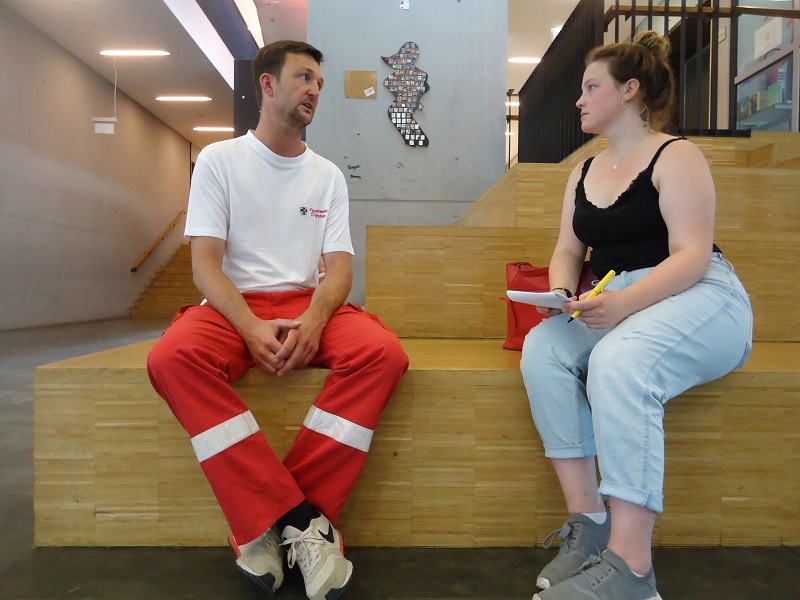
Edda's interview with a fireman:
Q: What do you like most about your job?
A: The job as a fireman and emergency helper is multi-faceted. No day is like another day.
Q: Think back when you had to decide which job you wanted to do for your life. Why have you chosen this job?
A: In former days I was a soldier and after the time at the army I still wanted to help people who are in danger. And after all those years, I am still happy to help!
Q: Of course, every job has negative sides. What about the negative aspects of being a fireman?
A: Sometimes we have emergency operations with children, and, as a father of two, it is hard for me to see the children having pain.
Q: And how do you get over it?
A: My colleagues and me, we support each other. Of course, over the years we have tried to learn to keep the sad things we witness during rescue operations in our job, so that ideally at home they are forgotten.
Q: Thank you for the interview! I’m glad to have people like you!
Move2learn
This year our etwinning project "Young European Journalists United" is centered around cultural heritage. We integrated the 'move2learn' initiative in this project and, more excitingly, we got to meet our international classmates; strengthening our European friendship and contributing to our understanding of different cultures and cultural backgrounds.
While the Italian students were here we took the opportunity to show the roots of German (NRW) culture.
Here in the Ruhrgebiet, the heavy influence of coal mining as the former main economy is noticeable not only in our language but also in architecture and art.
After the second world war, the Ruhrgebiet turned into a hotspot for coal mining as the largest coal depot can be found here. thousands of people from all over Europe immigrated to this work loaded region.
Following the tracks of this coal mining tradition we visited the pit Zollverein in Essen, this coal mine is the largest of its kind worldwide and was therefore declared UNESCO world heritage in 2001. Now the impressive symbol of workmanship and industrialization functions as a museum.
While we are walking the steps of a coal miner we take in the breathtaking architecture and start to understand the conditions and scale of coal mining in the 20th century.
The trip to Essen had an almost sentimental feel to it considering the last active coal mine in Germany "Prosper Haniel" closes this year bringing an end to the area of coal mining in Germany.
Our second trip took us to DASA hosting an exhibition on work throughout times.
with the pit and work in the past fresh in mind, we enjoyed a clever exhibition about work in the present day and most interesting work in the future.
To further understand the world of work we interviewed workers in different fields among others a firefighter.
Now we all got a sense of how much coal influenced work but how much influence did the coal mining have on our little town itself?
to find out we took part in a town rally and almost instantly we realized that most of the artwork our town, Marl, so frequently invest in is somehow coal related. our rally ended in a visit to a local sculpture museum that coincidentally just presented a new exhibition "Art & Coal- the battle of coal".
Our week is coming to an end so our teachers choose to take us to the "Ruhefestspiele" in Recklinghausen an annual event full of culture, acts from all over Europe and a very interesting history.
The winter of 1946/47 was the coldest Germany had in a long time and Hamburg, Germany capital for the theater to this day, was experiencing a shortage of heating material. The theaters had trouble performing because not only was the audience looking for a warm and comfortable room but also the stage techniques required heat. Faced with their theaters closing the owners decided to drive down to the Ruhrgebiet with all its coal. They arrived in Recklinghausen, pit König Ludwig, and asked for coal to run their theaters with. They were given the coal even though the transaction could have gotten them into trouble with the occupying forces.
In the following summer, the artists came all the way from Hamburg to perform for all miners as a sign of their gratitude.
This is how the culture festival for everyone was born
And yet again we were shown how coal means culture in NRW.
Funny enough even our farewell barbecue could not have happened without coal.
This week brought us all closer together but sadly all things have to come to an end so we had to say goodbye to our Italian friends the next morning.
We all can't wait until September!
Alisa Winkelhagen
Zeche Zollverein
On the first day of our exchange week, we visited “Zeche Zollverein“ and the including “Ruhrmuseum“ with our move2learn team in Essen. It's an old pit, UNESCO world cultural heritage and the biggest workplace in the past of our region. So it perfectly fits to the rest of the week about the world of work (Citizens@work).

The official opening in 1851 and in the next 100 years it was considered as one of the biggest and most powerful pit worldwide. On a 100 ha terrain worked 600.000 people between 1851 and 1986 under- and as well over ground. The deepest shaft, was shaft 12 in 1000 meter underground. A hard work for everyone who had been there. Overall they mined 240 million tonnes of coal . On December 23rd, 1986 the pit closed, it was the last of 290 smaller pits in the biggest mining city in Europe. After the closure it was immediately listed, to prevent the demolition of these historical buildings. architects and engineers were ordered to rebuild parts of the pit, to reuse them. But the real rebuilding happened after “Zeche Zollverein“ became UNESCO world cultural heritage. For example the “Ruhrmuseum“ in the coal washing tract was established. Many exhibitions in Essen are in old buildings of the pit, so it has created new workplaces although it is closed.
It was a very nice week with a wonderful team.We had a great time together and I'm looking forward to our trip to Rome.

By Annalena Schwabe
https://www.zollverein.de
https://de.wikipedia.org/wiki/Zeche_Zollverein
Evaluation of the M2L Week
This week was one of the best but also one of the most exhausting weeks of my life. We traveled to many places in and around Marl. I really liked exploring different aspects of our region with the girls which I didn’t even know on my own, because in school I never do exchanges to these special places like the “DASA” or the “Ruhrmuseum”.
In my opinion we did many things in our big group, but unfortunately there was less time for the Italian girls getting to know the German families or showing them the place where we exactly live (like surroundings of our houses).
Additionally I learned a lot of things of the Italian culture, without being in Rome actually. We talked about the people on the street there and the behaviors in the bus or trains for example. My exchange partner taught me to pronounce an Italian tongue twister, which is: “Apelle figlio die Apollo fece una palla di pelle di pollo, tutti i pesci vennero a galla per vedere la palla di pelle di pollo fatta da Apelle figlio di Apollo.” I learned it by heart automatically because we said this all the time. As you can see, I learned a part of a language just by getting to know new people from another country.
When we were in school one day, the Italian girls showed us a game which is called “Sardina”. It’s much fun and you can play it with many people only using your hands. It’s quite nice to see new things that aren’t part of our daily life. I expected to have more time at home with my partner, but we did many excursions.
All in all it was a great week and I’m thankful for being part of this fantastic group. I will always remember the jokes, games, trips and those lovely people I got to know.
-Milena S./